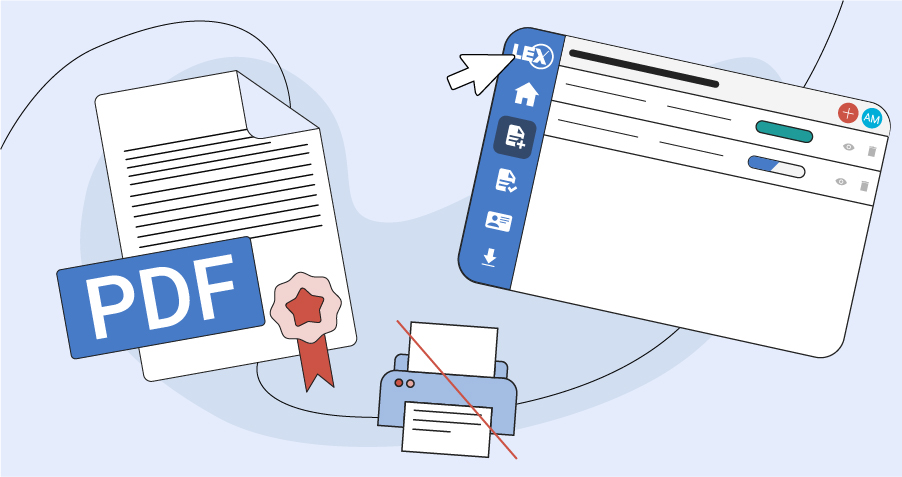Share on :
When signing a private deed by hand, it is customary to initial each page of the document.
This is a time-consuming operation when the document comprises several dozen pages. The practice is often misunderstood by signatories, and its usefulness is constantly called into question.
In the age of dematerialization, isn't this practice doomed to disappear?
In addition to its lack of legal value, there is no need to initial a contract or other document when it is signed electronically.
What is an initials?
The initials, sometimes defined as an abbreviated signature, are a handwritten sign added to each page of a signed document, with the exception of the page containing the signature itself. Often located in the bottom right-hand corner, it is generally composed of the initials of the signatories.
What's the point of signing?
The initials perform two essential functions when signing a document:
- Certify that the signatories have read and approved the entire text;
- Guarantee the integrity of the signed document, by preventing any modification, addition or deletion of a page by one of the parties.
What is the legal value of the initials?
-
Authentic deed
Authentic instruments are subject to special formalities. For this reason, initialling is mandatory and any page not initialled will be considered null and void.
Under Decree no. 2005-973 of August 10, 2005, each sheet is initialed by the notary and the signatories to the deed.
On the other hand, it also specifies that when all the documents forming the authentic deed are brought together by a process that prevents any addition or replacement, it is not necessary to initial each page. In the paper world, the "notarial binding" process is commonly used. In the case of an electronic signature of an authentic deed, however, it is the notary's signature that performs this function.
-
Private deed
As explained in the article on handwritten information, the only formality required for private deeds(sales contracts, leases, insurance contracts, telephone subscriptions, bank loans, etc.) is the signature. The addition of initials is therefore not a legal requirement.
However, initials can be useful as evidence of the validity of a document and its signature.
Does electronic signing still have a purpose?
While initialling is compulsory when signing authentic deeds in paper format without a notary's binder, it is not when using an electronic signature. The electronic signature already ensures theintegrity of the document. It cannot therefore be altered after signature.
In addition to this legal framework, Lex Enterprise offers the option of requiring the signatory to read the document, reviewing it in its entirety before signing electronically. This ensures that the document is read for the same purpose as the initials.
" The desire to transpose paper-based practices into the digital world at all costs is a false good idea. Not only does it contribute to delaying and considerably complicating the digital transition of both private and public companies. Anna Baciotti, Lex Persona's Head of Legal Affairs and DPO, asserts : "The desire to transpose paper practices into the digital world at all costs is a false idea.







